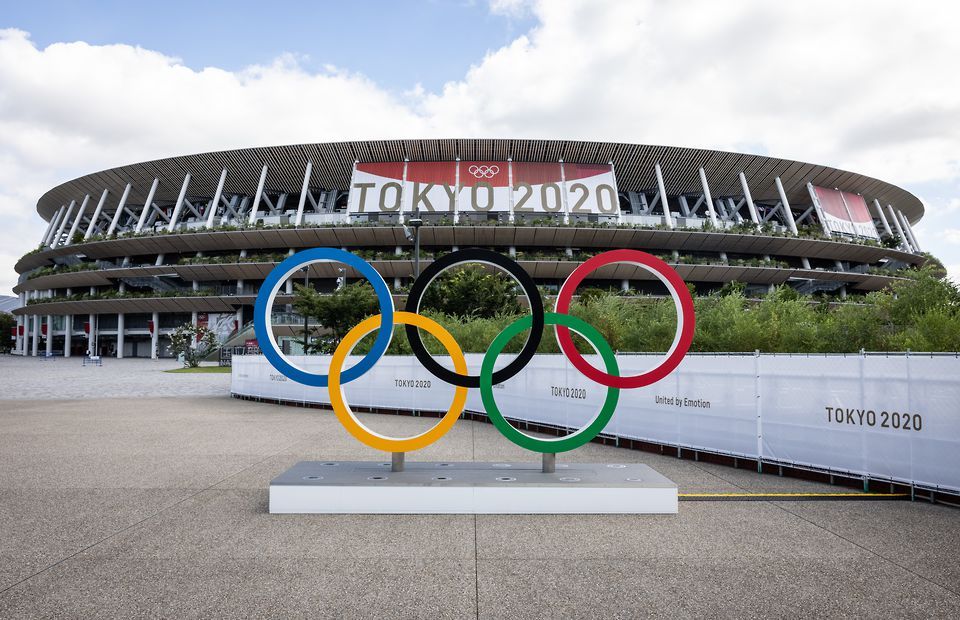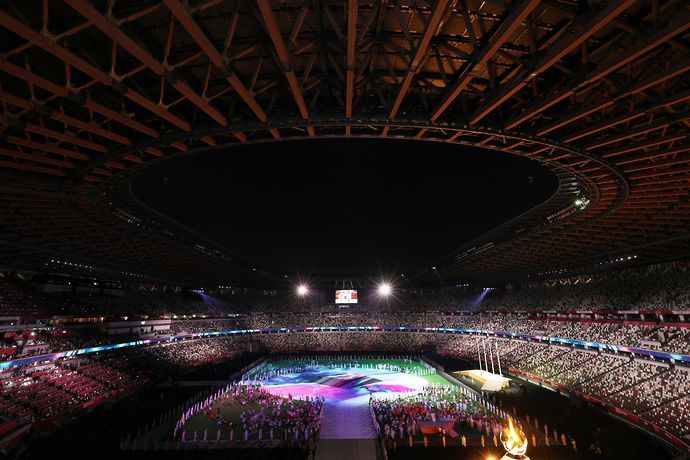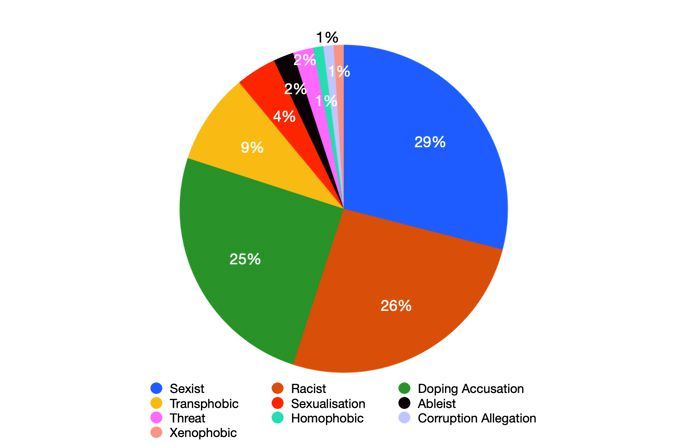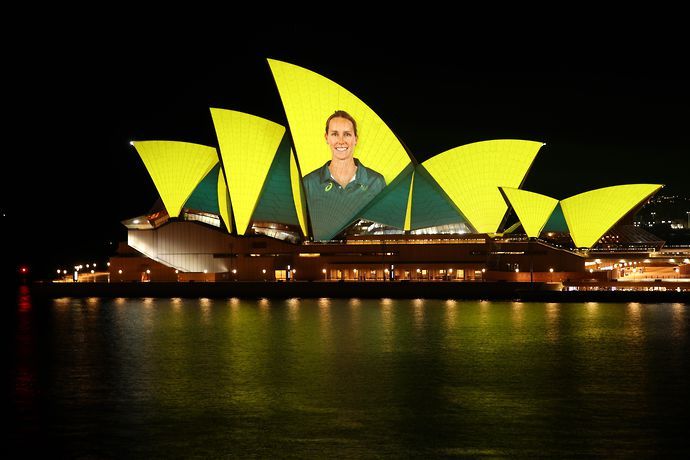A study conducted by World Athletics has revealed an overwhelming statistic of online abuse sent during the 2020 Olympics.
The governing body has released numbers compiled over the summer Games and discovered a mass of sexist, racist, homophobic and transphobic remarks, with women being the subject of 87 percent of cases.
A staggering 67 percent of the online abuse was targeted at two women in particular, who are both black.
Unsupported accusations of doping were also reported in the study, which monitored 161 Twitter accounts belonging to athletes competing in Tokyo.
A total of 23 athletes received abuse throughout the course of the Games — 16 women and seven men — and 132 discriminatory posts were detected from a field of more than 240,000 tweets.
A reported 132 discriminatory posts written by 119 individual users were assessed.
Sexism was the most common category of the flagged posts at 29 percent, while 26 percent was made up of racial abuse, and 25 percent consisted of unsupported doping allegations.
A 65 percent majority of the posts were labelled "gravely abusive" by World Athletics and work is currently undergoing to take action against the senders.
World Athletics President Sebastian Coe has described the results of the study as "disturbing levels" of online abuse and an "unfathomable" amount for the athletes targeted to deal with.
A further breakdown of the study results revealed nine percent of the posts were transphobic, two percent were ableist, and homophobic and xenophobic remarks each made up one percent.
Four percent of the posts featured the sexualisation of athletes and two percent were said to include direct threats.
"When we published our Safeguarding Policy earlier this month, I said athletics clubs, schools and community sports environments should be safe and happy places for those in our sport," Coe said.
"In a world where we share so much of our lives online, this must apply to the virtual, as well as the physical world.
"This research is disturbing in so many ways but what strikes me the most is that the abuse is targeted at individuals who are celebrating and sharing their performances and talent as a way to inspire and motivate people."
Two of the top three athletes from the Tokyo Olympics were women. Australian swimmers Emma McKeon and Kaylee McKeown tallied 11 medals between them, seven of them gold.
McKeon, who won four gold gongs, finished just behind 2020's top athlete Caleb Dressel of the USA, who took home five titles, also in swimming.
A number of new milestones were set and records broken by women during the Games — including Allyson Felix's 11th medal to become the USA's most successful track and field athlete in Olympic history, breaking the record previously held by Carl Lewis.
Team GB's Laura Kenny also made history by becoming the most successful female cyclist at the Games, as well as matching Charlotte Dujardin's tally of most Olympic medals won by a British woman.
World Athletics will continue further research into the issue of online abuse towards athletes and has pledged to keep discrimination away from its own social media channels.
"Shining a light on the issue is just the first step," Coe stressed.























